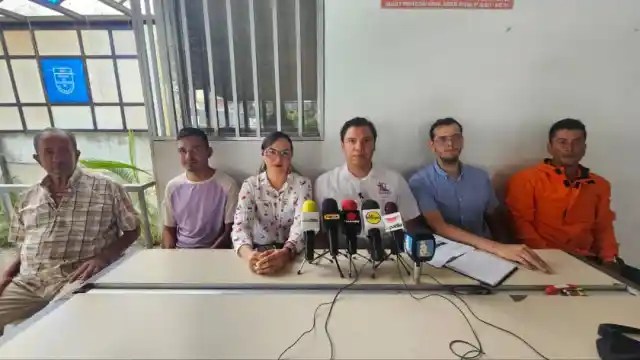
World Hemophilia Day is commemorated this Wednesday, April 17th, a hereditary condition characterized by deficiencies in blood clotting mechanisms. In Venezuela, 70% of patients who suffer from this condition continue to suffer irreversible damage as a result of not receiving treatments in a timely manner from 2016 and 2022, and to this one must add the delays that have been occurring in recent months that even risked the death of a child in Portuguesa State.
Luz Dary Depablos / Correspondent lapatilla.com
Chronic osteoarthritis in hips and ankles, deformities in the joints, internal bleeding, are a few of the irreversible consequences that affect Venezuelan patients with hemophilia after not having received treatment in a timely manner. All this prevents them from walking up or down stairs easily and, in some cases, the use of crutches for life.
“Venezuela began in November 2022, through the Social Security Administration, the purchase and delivery of prophylaxis drugs for all people with hemophilia in the country,” reported Luis Rojas, President of the Venezuelan Association for Hemophilia.
However, the timely distribution is not be being made, since in Zulia patients must wait up to three months for their respective treatments, and even when they have received them, in most cases these have not been complete, a situation that is also repeated in the states of Mérida and Portuguesa.
Rojas pointed out that two weeks ago a child was in danger of dying due to a lack of a blood factor (protein found in the blood), so his parents had to do an emergency transfer him from Guanare to Barquisimeto to be able to complete the treatment, despite that each and every one of the Social Security centers “must have emergency treatments to support the right to health.”
Deadly delays
The president of the association, who also suffers from this condition, asked the healthcare authorities to adjust the monthly distribution, since not receiving the prescribed treatments puts them in danger of death.
Likewise, he reported that: “there are no reagents in the municipal blood bank, this is already critical for new diagnoses, for screening for inhibitors, for quantifying coagulation.”
Currently, the Venezuelan Association for Hemophilia has recorded 5,278 cases, of which 2,334 are hemophilia A and 629 are hemophilia B. In addition, 2,117 have Von Willebrand (causes uncontrollable bleeding) and the rest have other coagulation pathologies (bleed easily).
Darly Ramírez, leader of the Venezuelan Association for Hemophilia in the state of Táchira, where there are more than 100 patients with this condition, of which 30 are actively withdrawing their treatment from Social Security, said that so far this year only two of the four deliveries that correspond to patients in this state have been received.
He emphasized that since July of last year there have been delays and incomplete deliveries, that is, the drugs being delivered to the regional Social Security is not enough to comply with the respective treatments of all local patients.
De Rubio, a family with hemophilia
Benedicto Tarazona, a native of the town of Rubio, Junín Municipality, father of four children between 40 and 45 years old, who have this condition, assured that two of them developed disability in their lower extremities, as a result of the six years that the Government of Nicolás Maduro did not provide any treatment throughout the country.
Given the deterioration in the health of his children, Tarazona is currently dedicated to caring for three of them due to the disabilities they now suffer.
However, one of his children, with irreversible damage, managed to emigrate to Chile, where he underwent knee surgery at no cost and his quality of life changed significantly, since he received the treatment three months in advance, delivered directly to his address.
“Unpurchasable” treatments
In the case of adults, it is estimated that the costs to acquire the respective treatments range between 3,000 and 6,000 thousand dollars, which must be applied two or three times a week. With the latest advances, subcutaneous (slow delvery/release) treatments have been developed and last a month in the blood.
At the World Hemophilia Day Congress, which is taking place today in Madrid, a new treatment will be presented that can last up to 3 months in the blood. This would significantly improve the quality of life of patients with hemophilia.
“For me it’s almost a cure!” exclaimed Luis Rojas, who traveled to Spain in the company of a hematologist and two Venezuelan physiatrists, where they will evaluate the positive aspects of these advances in Medicine which they hope to present to the Ministry of Health so that future purchases can be evaluated, because apart from being less expensive, it would offer a better quality of life to those who suffer from this condition, mainly for babies, who suffer the most with intravenous treatment.

